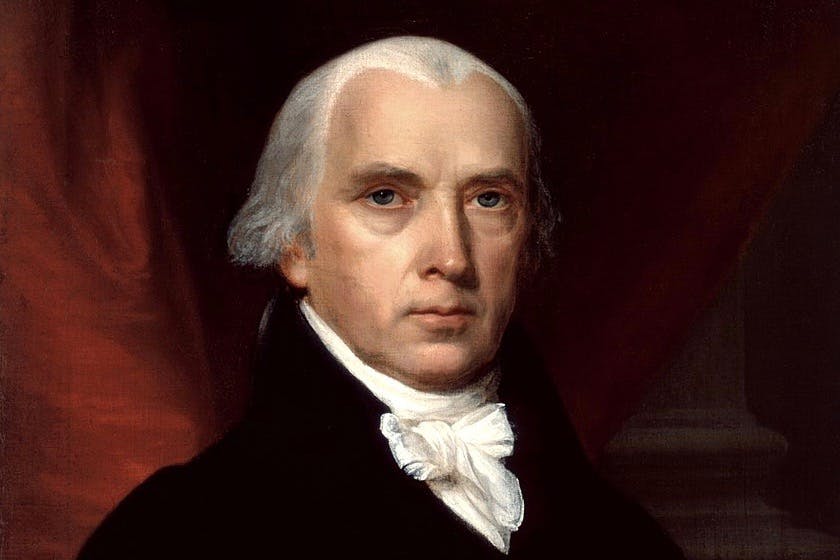James Madison
James Madison’s slight stature and reserved personality gave little indication of his keen intellect and shrewd nature. No other Founder had as much influence in crafting, ratifying, and interpreting the United States Constitution and the Bill of Rights as he did. A skilled political tactician, Madison proved instrumental in determining the form of the early American republic. Explore Madison’s contributions at the Constitutional Convention with our activity Madison’s Notes are Missing where you will travel back in time to ask questions of the Founders and report their findings in a news story.
Madison believed that men in society tended to form factions, defined as groups that promoted their own interest at the expense of the rest. Factions posed a special problem for democratic societies because a faction composed of the majority of the people could easily oppress the minority. To combat this, as he argued in Federalist Paper No. 51, power must be set against power, and “ambition must be made to counteract ambition.” Madison therefore favored the separation of powers within the central government and a division of power between the national and state governments. This latter concept, federalism, was a radical idea in the late eighteenth century. Few people at the time believed that power in a nation could be divided between two levels of government, each supreme in its own sphere.
Madison believed that safety lay in numbers. The more heterogeneous the society, the less chance there would be for any one group to combine with others to form a faction of the majority. Though ancient philosophers had argued that only small republics could survive for a long period of time, Madison believed the opposite. A large republic could encompass many different groups and different interests—economic, religious, and social—and thereby provide a safeguard against the tyranny of the majority.
Famous Quotes
“The essence of Government is power; and power, lodged as it must in human hands, will ever be liable to abuse.” – 1787
“Place three individuals in a situation wherein the interest of each depends on the voice of the others, and give to two of them an interest opposed to the rights of the third. Will the latter be secure? The prudence of every man would shun the danger. The rules & forms of justice suppose & guard against it. Will two thousand in a like situation be less likely to encroach on the rights of one thousand?” – 1821

